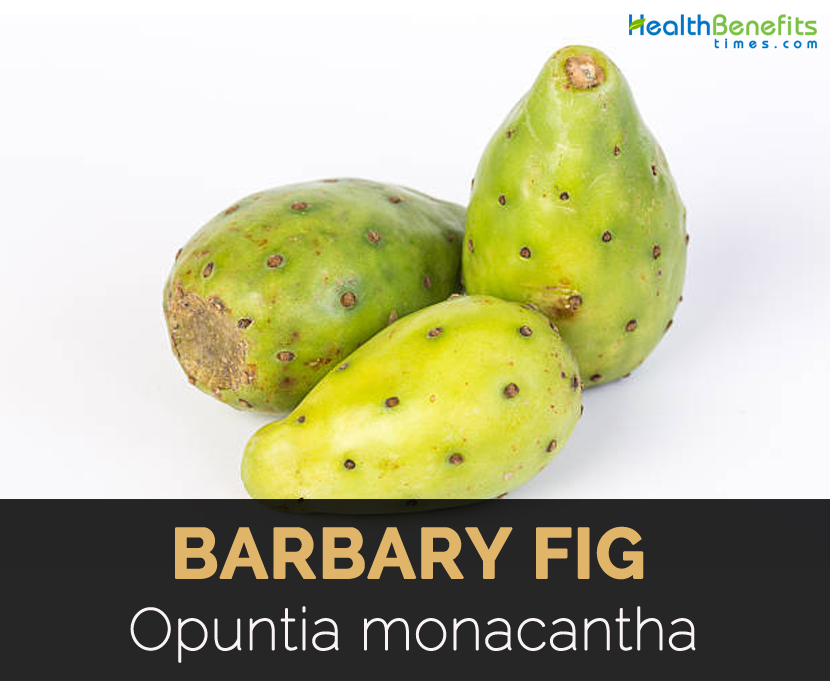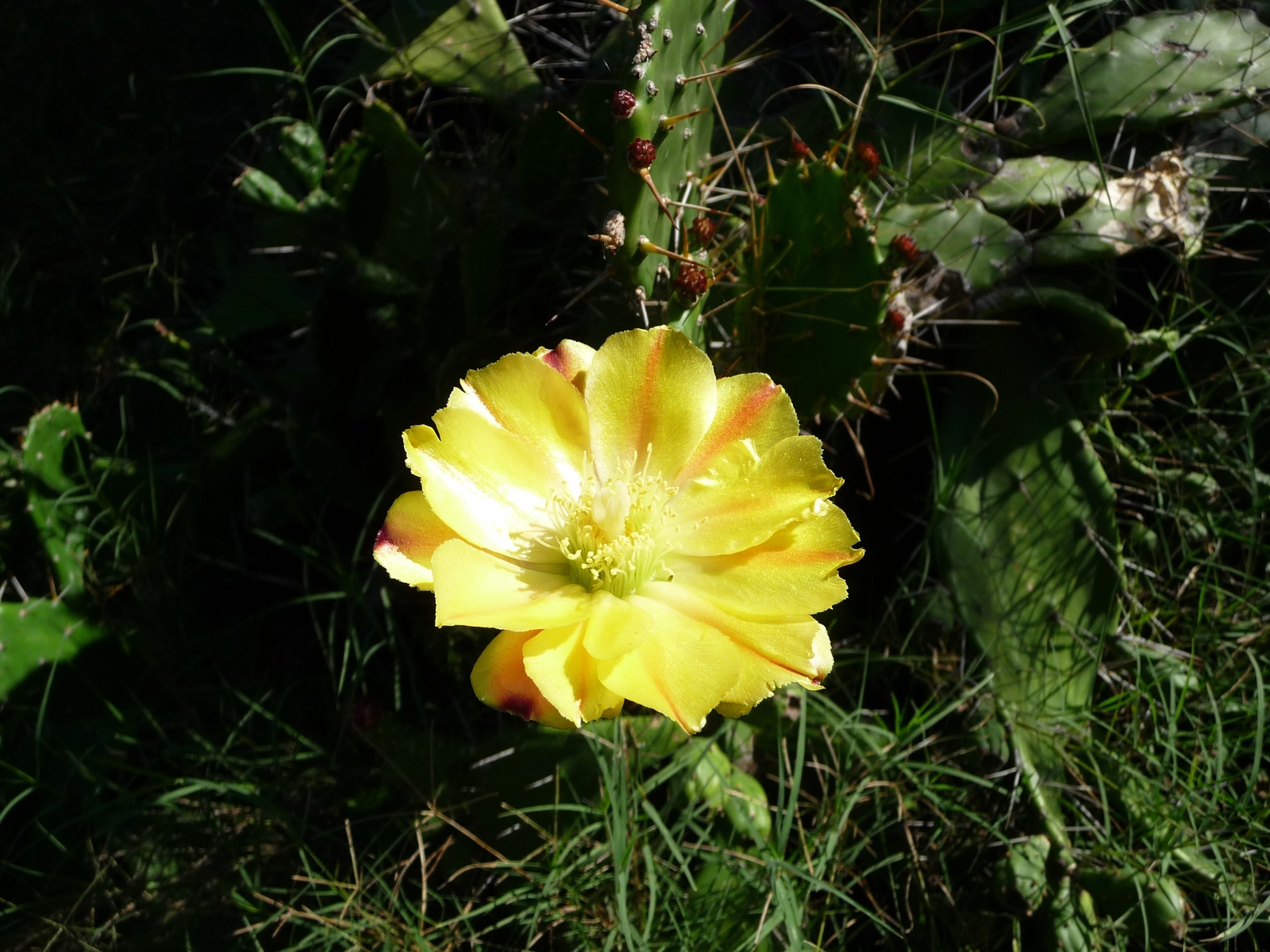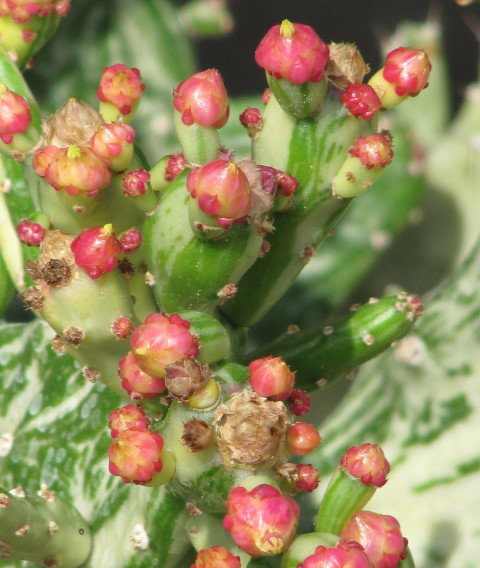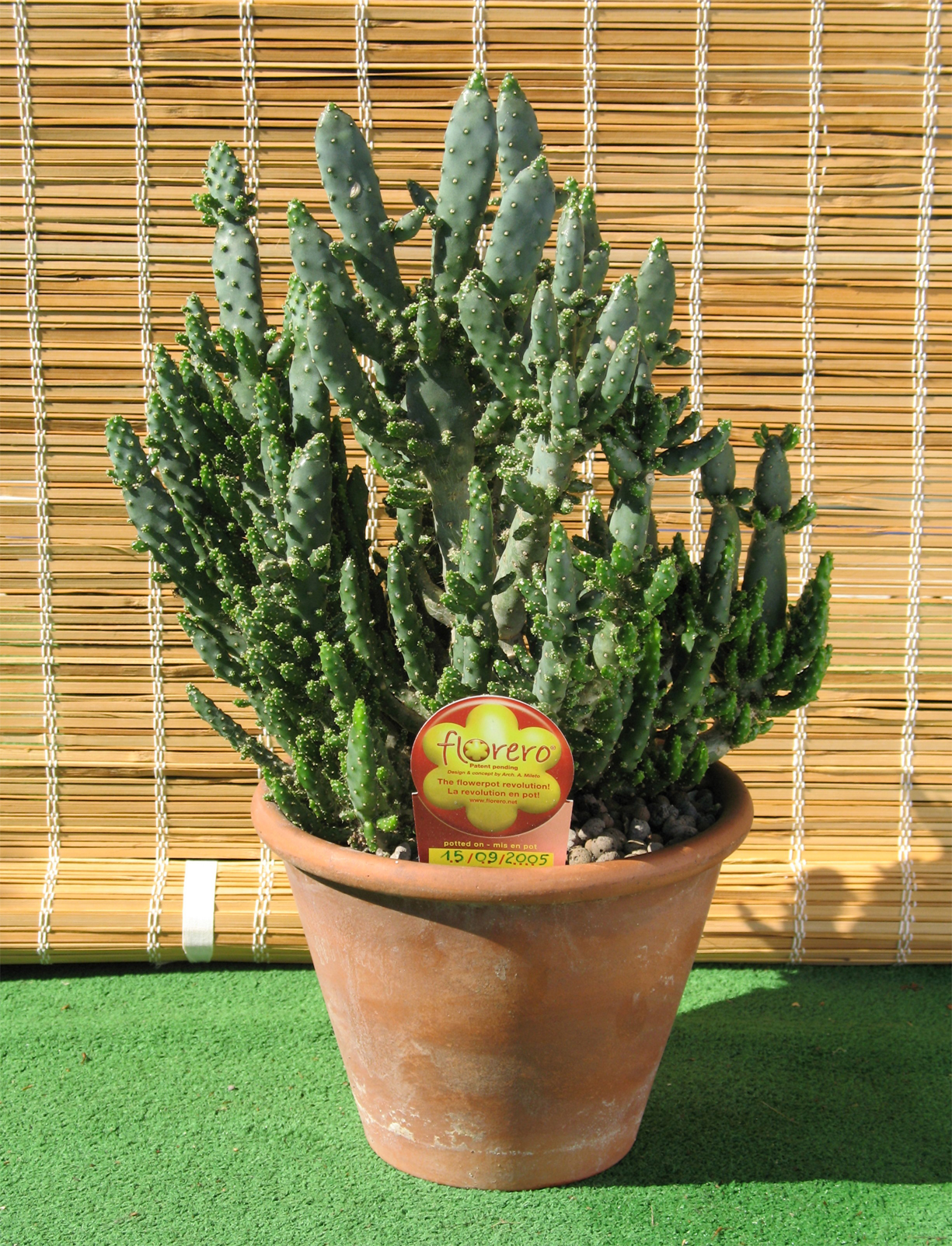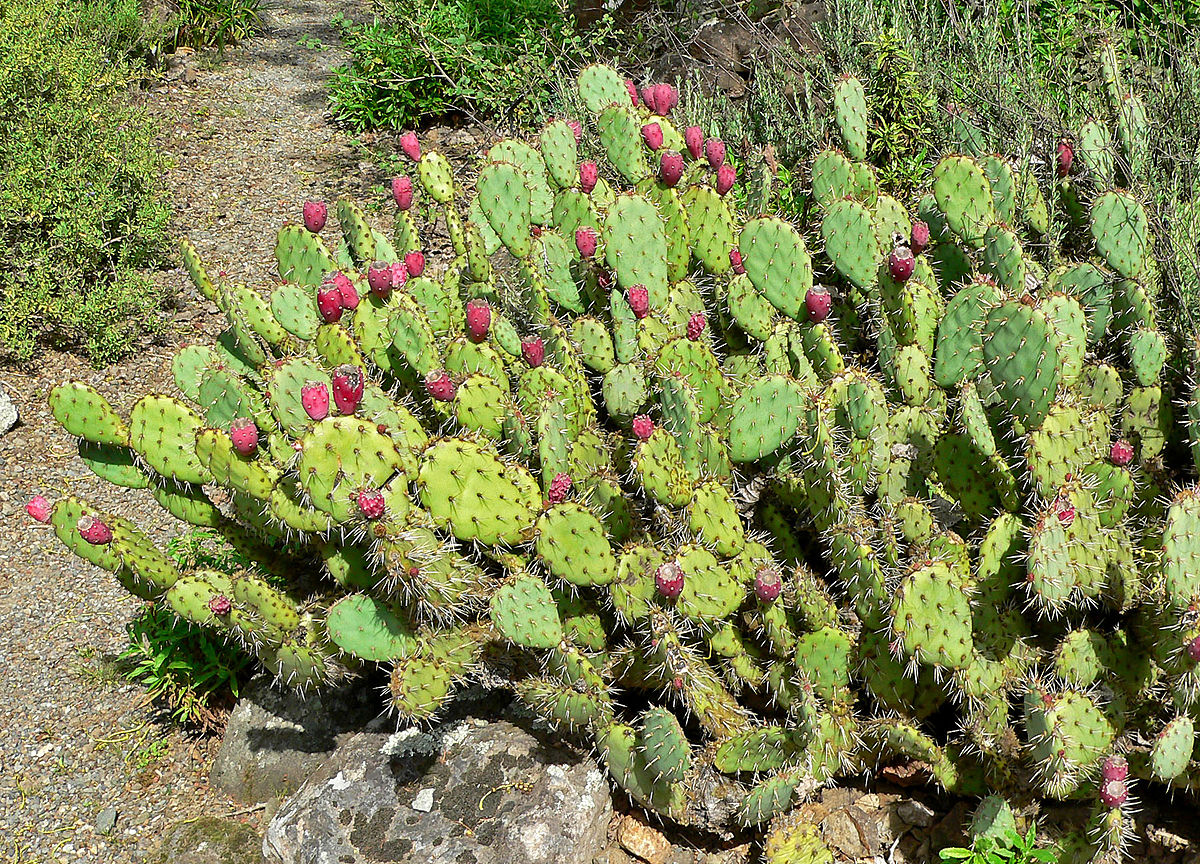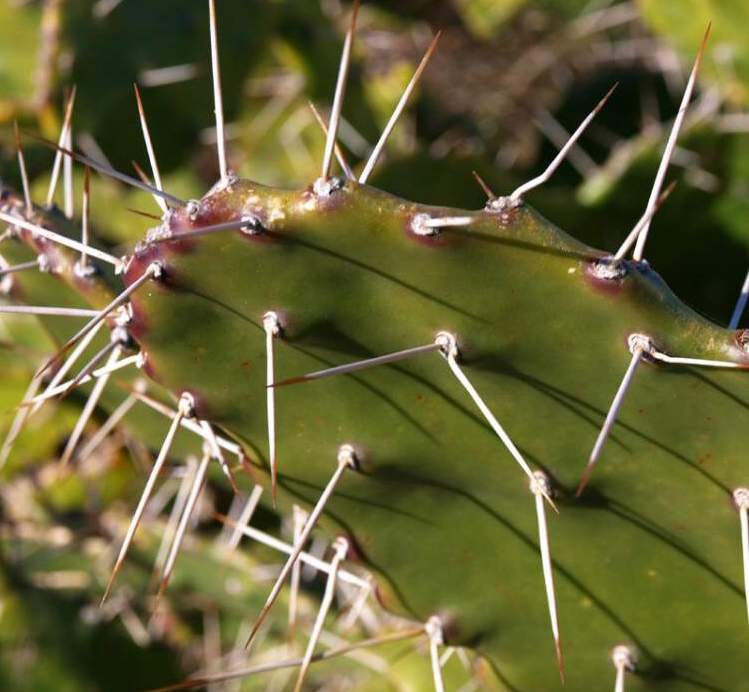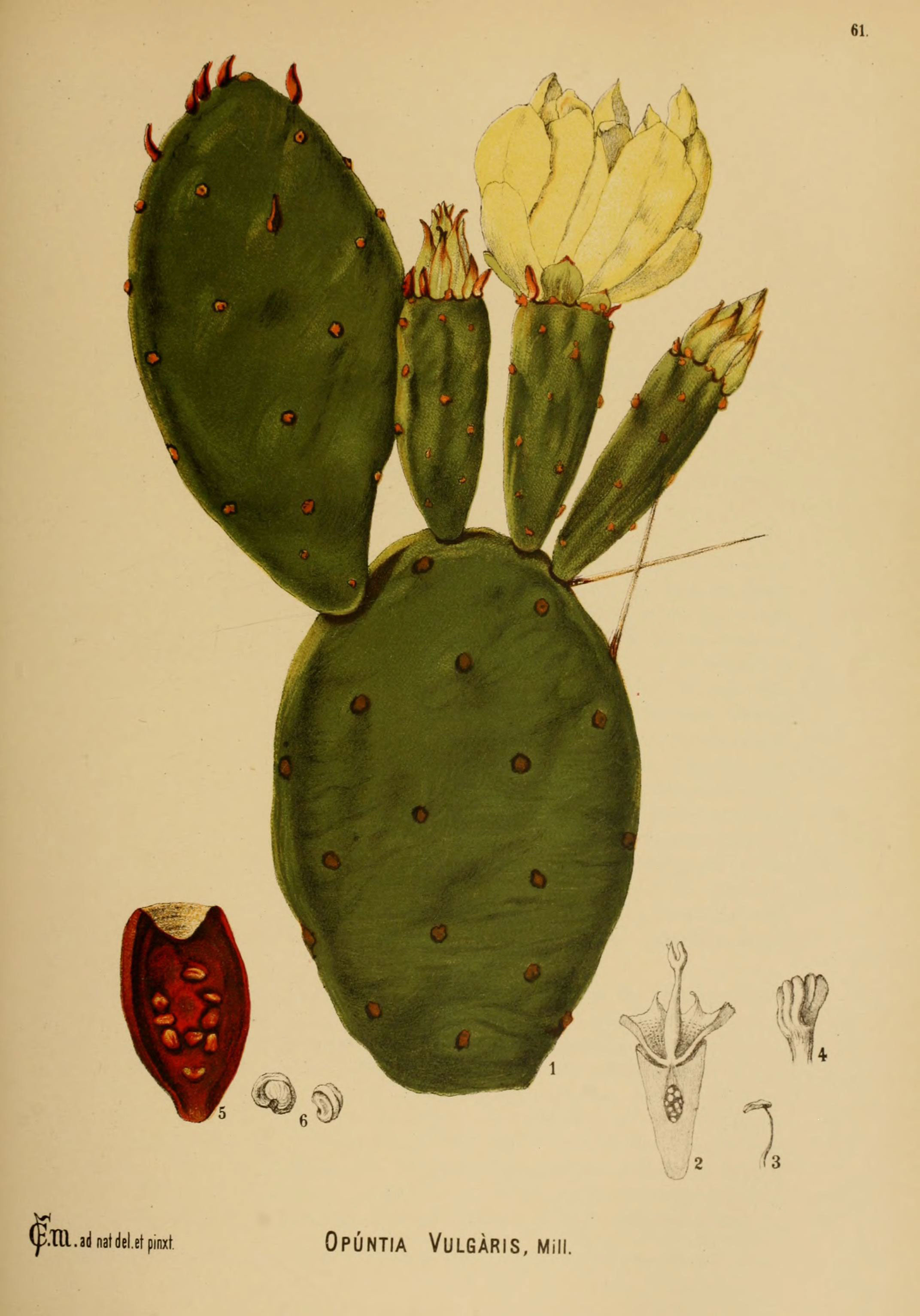Opuntia monacantha is a fast growing shrubby or tree like cactus which reaches to the height of 20 feet with short trunk upto 8 inches in diameter. The stem segments are oblong to obovate which is tapered towards the base, has irregular margin upto 12 inches long and 5 inches wide. Spines are slender, brown, grey and unequal upto 1.6 inches long. Flowers are yellow to deep orange-brown having reddish outer perianth segments upto 3 inches and 4 inches wide. Fruits are reddish purple, pear shaped upto 3 inches long and 2 inches in diameter.
Plant description
The shrub is erect, succulent with shallow fibrous roots but can reach 4 meters. Stems are grey green to light green. The one main stem is woody at base having many side branches which is made up of fleshy, glossy green, jointed, obovate, oblong or oblanceolate segments upto 45 cm long by 15 cm wide and 1.5 cm thick. Leaves are small and scale like form beneath areoles. Flowers are 6 cm in diameter borne on margins of segments. Fruits are obovoid, 5–7.5 × 4–5 cm and green which turns yellow to reddish purple. Seeds are smooth, irregularly elliptic, 4 × 3 mm, pale brown which is embedded in reddish and pulpy flesh.
Medicinal uses
It is used to treat diabetes, bronchial asthma, burns and indigestion.
Culinary uses
It is used in jellies, juices, teas, candies, alcoholic drinks.
References:
https://www.itis.gov/servlet/SingleRpt/SingleRpt?search_topic=TSN&search_value=504041#null
https://keyserver.lucidcentral.org/weeds/data/media/Html/opuntia_monacantha.pdf
https://worldofsucculents.com/opuntia-monacantha-drooping-prickly-pear/
Comments
| Barbary fig Quick Facts | |
|---|---|
| Name: | Barbary fig |
| Scientific Name: | Opuntia monacantha |
| Origin | South America – Paraguay, Argentina, Uruguay and Brazil |
| Colors | Yellow to reddish purple |
| Shapes | Obovoid, 5–7.5 × 4–5 cm |
| Flesh colors | Reddish |
| Name | Barbary fig |
|---|---|
| Scientific Name | Opuntia monacantha |
| Native | South America – Paraguay, Argentina, Uruguay and Brazil |
| Common/English Name | Barberry Fig, Cochineal Fig, Barbary Fig, Cochineal Prickly-Pear, Common Prickly Pear, Indian Fig, Drooping Prickly Pear, Prickly Pear, Drooping pear, Drooping tree pear, Smooth tree pear, Smooth-leaf tree pear, Spiny prickly pear, Spreading prickly pear, tuna |
| Name in Other Languages | Afrikaans: Luisiesturksvy, Suurturksvy; Brazil: Cardo-Palmático Palmatória; Ascension, Saint Helena: Opuntia, Red Tungi, Prickly Pear, Red Tungy, Round Red Prickly Pear; Chinese: Dan Ci Xian Ren Zhang; India: Nag Phena (Hindu), Naga Kulli (Kannada); Samoan: Lauaufai Va; Portuguese: Monducuru, Arumbeva, Urumbeba; Somalia: Tiin, Quecis, Tiin-Hindi Italian: Fico d’India (nome genere); French: Oponce; Portuguese: Palmatória, Urumbeba, Monducuru; Spanish: Chumbera, Tuna; English: Cochineal prickly-pear, Drooping prickly-pear, Drooping tree-pear |
| Plant Growth Habit | Erect succulent shrub |
| Plant Size | 4 m |
| Branches | Up to 45 cm long by 15 cm wide and 1.5 cm thick |
| Stem | Grey green to light green |
| Flower | 6 cm diameter |
| Fruit shape & size | Obovoid, 5–7.5 × 4–5 cm |
| Fruit color | Yellow to reddish purple |
| Flesh color | Reddish |
| Seed | Pale brown, irregularly elliptic, 4 × 3 mm |


